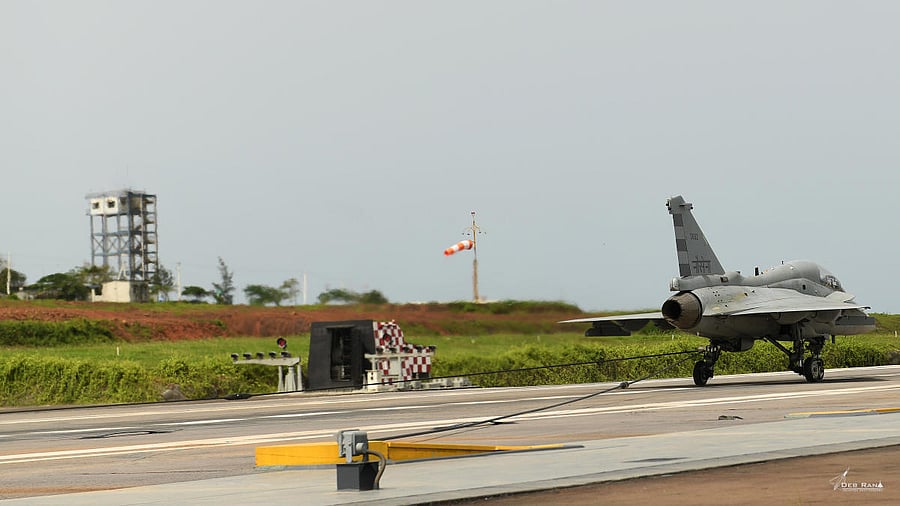
For the first time on Thursday homegrown maritime fighter Tejas Light Combat Aircraft-Navy successfully tested the arrester-hook technology, which the aircraft will eventually use to land on the deck of an aircraft carrier.
Though it may take several months and dozens of sorties before the LCA-Navy gets a chance to land on the deck of an aircraft carrier, the first trapping engagement with arrester hook is a step forward for the indigenous aircraft, whose death knell was almost sounded by Navy Chief Admiral Sunil Lanba two years ago.
Admiral Lanba stated that though the Navy supported the programme, the indigenous fighter was not good enough for the upcoming aircraft carrier (IAC-1), which Navy planned to construct in India.
The first prototype of LCA Navy flew in December 2014 while the second prototype took to the skies in February 2015. The second aircraft addressed several deficiencies that Hindustan Aeronautics Limited claimed was associated with the first one.
Sources said with support from Defence Minister Nirmala Sitharaman, the LCA-Navy programme was given a fresh push.
About 10 days back, it flew with the tail hook in Bengaluru. On Thursday, its ability to be trapped with an arrester wire while taxying at a moderate speed was successfully tested at the Navy's Shore Based Test Facility (SBTF).
“The LCA Naval Prototype-2, piloted by Capt Shivnath Dahiya safely executed the first contact of the arrestor hook system with arresting wire at moderate taxi-in speeds on location at the SBTF at INS Hansa. The first successful taxi-in engagement was monitored by the Landing Signal Officer Cmde J A Maolankar and Test director Gp Capt A Kabadwal (Retd),” HAL says in a statement.
This was the first of a series of engagement planned at proving the arrestor hook capability, said HAL chairman and managing director T Suvarna Raju.
Over the next few months, more trials would continue, first with the aircraft taxying at increased speed followed by proper landing at the SBTF. “By the end 2018, the indigenous naval fighter should be ready for trials on an aircraft carrier,” said an official.
HAL’s design wing, Aircraft Research and Design Centre (ARDC) has designed and developed the arrestor hook system (AHS) for deck operations. The NP-2 has been integrated with the AHS.
